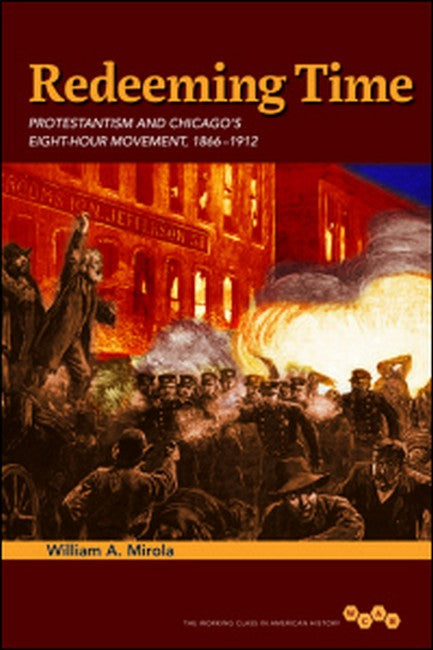""Mirola creatively challenges what we thought we knew about religion's role in one of the most important dramas unfolding in the Gilded Age--the struggle to limit the workday. His theoretical approach to the uses of religious rhetoric should be required reading for students of reform.""--Ken Fones-Wolf, author of Glass Towns: Industry, Labor, and Political Economy in Appalachia, 18901930s ""While much has been written about religious institutions and the labor movement the analysis has rarely been done critically and too often from an instrumental perspective. Redeeming Time: Protestantism and Chicago's Eight-Hour Movement, 1866-1912 however is the rare book that provides students of labor history a precise sense of how and why the church was reacting to worker struggles. In William A. Mirola's persuasive telling we realize that in the fight for the shorter work day the church never substantively tried to influence employers to humanize the work place. Instead it was economic, political, and mass worker resistance that accomplished what appeals to a Christian community could not.""--Robert Bruno, author of Justified by Work: Identity and the Meaning of Faith in Chicago's Working-Class Churches

